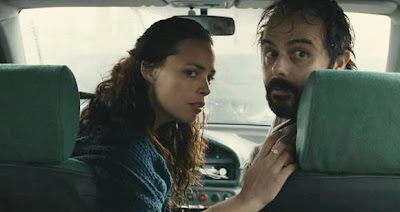Dec 22, 2013
The Past
There are no answers. Or there are no easy answers in this amazing film from Asghar Farhadi, the writer/director of A Separation. This is how a drama is made.
Ahmad, an ex-husband (Ali Mossafa) comes back to Paris from Teheran to officially divorce his wife Marie (Berenice Bejo, from The Artist), who now wants to marry Samir, a new man (Tahar Rahim, from A Prophet). Sounds simple enough, but Farhadi lets this tale unravel with the endless complications of life: lies, secrets, motives, fears.
Families are not the single, solid, unshakable unit they used to be. Now they are comprised of stepfathers and stepmothers and parents who move away and have their own families. The kids are bounced around the needs of the adults. The adults in this case are all caring, competent people, they are all dealing with other people's children as if they were their own. Farhadi is a keen observer of the heaviness of little things. When people have complicated pasts (and Marie's is above average) a little incident, like kids misbehaving, for instance, unleashes ripples of spoken and unspoken consequences. Everything is a clue: she did not reserve a hotel room for Ahmad. He still keeps all his stuff in her house. Why? Her sullen teenage daughter hates Samir. Ahmad functions almost like the town crier, spilling confidences left and right. But what is his motive?
We think we know the answers, and we do, superficially, but like the characters in this movie, we really don't know the half of it. The Past is a detective story of love.
In lesser, more sentimental hands, it would be a barely credible weepie, a convoluted soap opera, but Farhadi is too smart and sensitive for melodrama; he is interested in motive and in the mysteries of human behavior. Why people do what they do (for one overwhelming reason: love) and the mostly unhappy consequences this brings.
Ahmad starts finding out what has been happening since he was gone. Turns out, each character has a past, and they all intertwine, connected by a single thread of love and need and family. The characters become detectives in their own story because they need to try to understand the tangled roots of their present predicament in order to move on to a future that seems extremely fragile.
The movie is full of telling detail. As in A Separation, Farhadi turns a personal family drama almost into a thriller, creating a richly woven and masterfully crafted story. As a writer, he manages to create such a rich structure that the second half of the movie, in many instances where movies tend to sag, becomes a tight knot of deeper and stranger revelations. The camera work is brilliantly unobtrusive, there is no music, no need to call out easy sentiments, in a movie where nothing that is happening is easy. We are intimate witnesses to a series of family crises and are positioned so close to the characters that we eavesdrop on this tangled web of conflicting desires. It is an intense and bracing experience. Normal life is very hard, and what we witness is the stubborn resilience of those who want to make it worth living, with all its heavy baggage.
Subscribe to:
Post Comments (Atom)

No comments:
Post a Comment